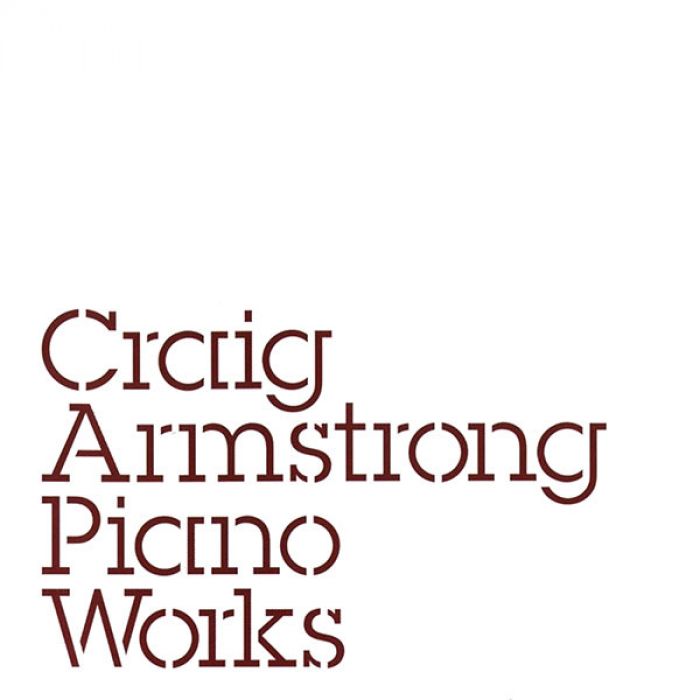Piano Works by Craig Armstrong (Review)

Scottish composer Craig Armstrong is usually better known for his collaborations, be it musical acts ranging from The Blue Nile and Massive Attack to — ahem — The Spice Girls and Hole, or the directors for whom he has scored movies including Moulin Rouge, Romeo & Juliet, Plunkett And Macleane, and Orphans. However, Armstrong has also recorded several solo albums, namely 1998’s The Space Between Us and 2002’s As If To Nothing.
Both of his albums found Armstrong combining his instantly recognizable piano tones with lush strings, vocalists including Paul Buchanan and Bono, and electronic programming. The results were often quite stunning, revealing Armstrong quite capable of recording material that was truly lovely and emotional in its own right, without having to be in the service of someone else’s creative vision. But when the disc faltered, as often happened on the disappointingly uneven As If To Nothing, it did so quite noticeably.
His latest album, Piano Works, finds Armstrong creating some of the most minimal music of his career. As the title might imply, the disc is entirely piano-based (although the presence of digital treatments does lend some more color to the album’s sonic palette), and finds Armstrong reworking some of his earlier material in addition to providing some brand new compositions.
As you listen to Piano Works, the most obvious thing you notice is the man’s playing style. Fluid and graceful, Armstrong’s music literally dances, and yet even at its most complex and layered (note the flurry of notes that opens “Weather Storm”), he renders each note with seemingly crystalline perfection. Every note is vibrant and pure, practically shimmering there in mid-air and demanding all of your attention at that moment, even if only for a fraction of a second.
At the same time, there’s something meandering, almost lethargic about his music. Despite all of the clarity of the execution, there’s very little sense of stiffness or that the music is calculated. It is still very much an emotional, and unabashedly romantic set of recordings.
“In My Own Words” immediately sets the mood, as Armstrong layers two very distinct melodies on top of eachother, one innocent and hesitant, the other deeper and graver. Over time, the two merge into something quite complete and resonant.
The aptly-titled “Gentle Piece” is the most fragile song on the album, and one that sounds as if it’s nothing more than an echo from some long-lost memory. The song barely seems as such, the various elements — sparse piano melodies encircled by fluttering, digitally-treated piano fragments (or is it vice-versa?) — almost too delicate to cohere, lest they crush eachother. And yet it does come together, however tenuously, and with a very haunting and emotional effect.
The aforementioned “Weather Storm” (which originally appeared on The Space Between Us) has an incredibly cinematic tone to it. A flurry of notes opens the song in a whirl, creating the sensation of a brisk autumn wind rustling through a rainswept city. Once the song begins in earnest, with its haunting melody accompanied by filigree after filigree, that notion is all the more apparent. One can almost see the opening credits that should accompany this song, the camera introducing the film’s characters as they wind their way through lonely times and places, the music perfectly echoing their state. Apparently, Armstrong can’t help but write film music, even for films that haven’t even been made yet.
“Fugue,” on the other hand, is the album’s most active track. A Reich-esque melody hops, skips, and jumps against a backdrop of plucked notes and bubbling, echoing tones. At times, the whole piece threatens to fall apart, before snapping back into place for another round.
Piano Works finds Armstrong also reworking several pieces he’s written for film scores in the past, including “Satine’s Theme” (Moulin Rouge) and “Glasgow Love Theme” (Love Actually). However, the most notable of these is the new version of the Orphans theme (titled, naturally, “Theme From Orphans”). What’s most impressive is how well the film’s elegiac and nostalgic tone fits the film’s story of a family coming to terms with their mother’s death. But it’s quite interesting to listen to this song while remembering the film’s incredibly twisted sense of black humor; my memories of the film’s more disturbing (and hilarious) scenes serve to make the track all the more poignant.
“Childhood 2” is another aptly-titled song. As another bevy of digitally-processed tones flutter amidst a most nostalgic piano melody, the sounds of laughing children can be heard occasionally surfacing. While it sounds rather obvious and almost trite, it works to great effect, especially in the song’s final minutes.
Here, the lines between the different sounds begin to blur — all of the piano sounds, processed or no, begin to meld together into one surreal, fluttering state, and the bubbling laughter, which grows more and more distant, only adds to the dreaminess. In the end, the piece truly does become a very haunting ode to childhood, it’s ephemeral tone making you feel as if you’re glimpsing the song from across a gulf of years.
It’s tempting to go on in such a gushing manner about every song on the album, as they all very much exist in their own emotionally cinematic world. However, there are moments when the album stumbles, when Armstong’s playing, as lovely it might be, meanders or becomes too overwrought and Windham Hill-ish for its own good (such as the reworked hymn that ends the album). But more often than not, it works, and works beautifully — even the overwrought moments, given the right mood, can be quite affecting. Piano Works easily contains Armstrong’s finest work yet, and I find it a perfect soundtrack for waxing nostalgic for the movies that play on in my memory.